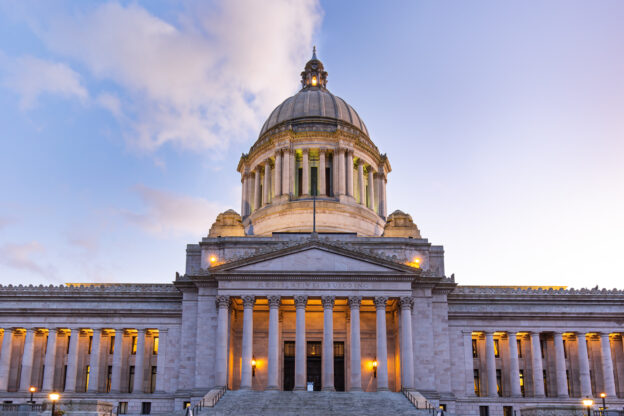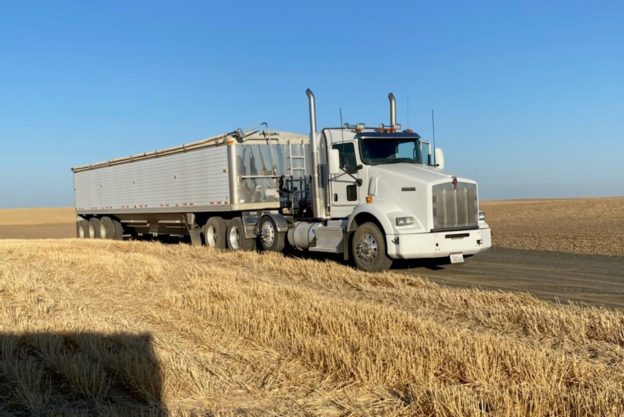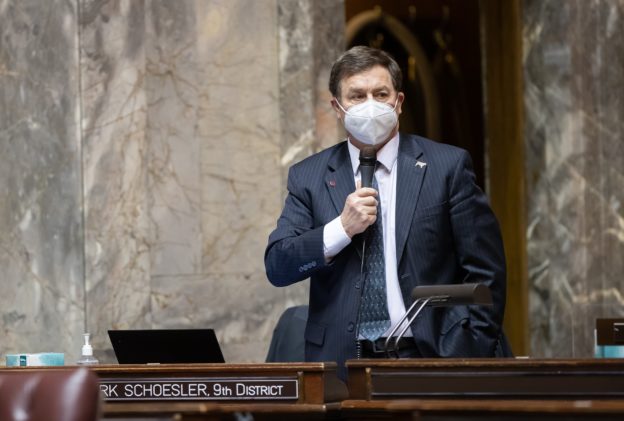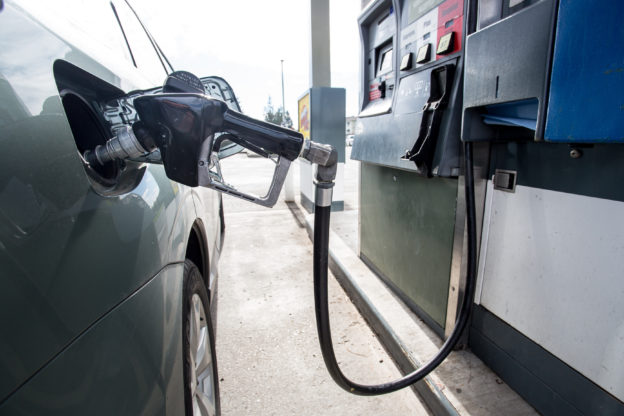Sen. Mark Schoesler will return to the Senate committee that addresses agricultural issues when the Legislature’s 2025 session begins next month.
The 9th District senator today learned he has been appointed to the Senate Agriculture and Natural Resources Committee.
Schoesler, a fifth-generation farmer who grows wheat, barley and fall peas and raises cattle, is pleased about coming back to the ag panel. For many years, his Senate leadership responsibilities prevented him from serving on that committee. Schoesler stepped down as Senate Republican leader in November 2020 after eight years.
“In addition to being a longtime farmer, I represent and serve a district that relies on agriculture,” said Schoesler, R-Ritzville. “Ag remains an important part of our region’s economy. I understand the challenges that farmers and ranchers face. I look forward to again offering an ag-friendly voice on this committee when session starts.”
Schoesler will continue his long streak of serving on the Senate Ways and Means Committee when the Legislature convenes Jan. 13 for 105 days. The 2025 session will mark the 21st straight year Schoesler has been a member of the budget-writing Ways and Means Committee since joining the Senate in 2005.
“I take great pride and responsibility in serving on the Ways and Means Committee and I’m pleased to continue doing so,” said Schoesler. “Tax and spending issues have always been among my highest priorities as a legislator. As a Ways and Means member, I watch out for families and businesses in my district and our state by working to keep taxes and spending in check.”
Schoesler will again be the Ways and Means Committee’s lead Republican on the capital budget, which helps fund construction projects for state government buildings, state parks and colleges and universities.
“In this role, I work with my fellow Republicans and lead Democrats on the committee to produce a list of worthwhile projects to include in the state capital budget for the next two years, including those impacting local school districts and higher education institutions like WSU and Eastern,” said Schoesler, whose district includes the Pullman-based Washington State University and Eastern Washington University in Cheney.
Schoesler also will continue serving on the recently renamed Senate Labor and Commerce Committee. He says he will continue advocating for regulatory reform and other issues that will benefit Washington’s job creators and working families.
“My years of experience in the business of farming have helped me understand regulatory issues, which along with workers’ compensation and unemployment insurance are among the key topics this committee addresses. I know how overzealous regulations imposed by government agencies can be as hard on employers as taxes,” said Schoesler.
Schoesler said the Labor and Commerce Committee should focus on shrinking and simplifying Washington’s vast, complex regulatory system.
“Washington’s regulatory code has over 196,000 separate regulations, which is more than all but five states have. That should tell you there is serious need for reform – and this committee is the place to start,” added Schoesler.
Schoesler represents the 9th Legislative District, which covers all or part of Adams, Asotin, Franklin, Garfield, Spokane and Whitman counties.














